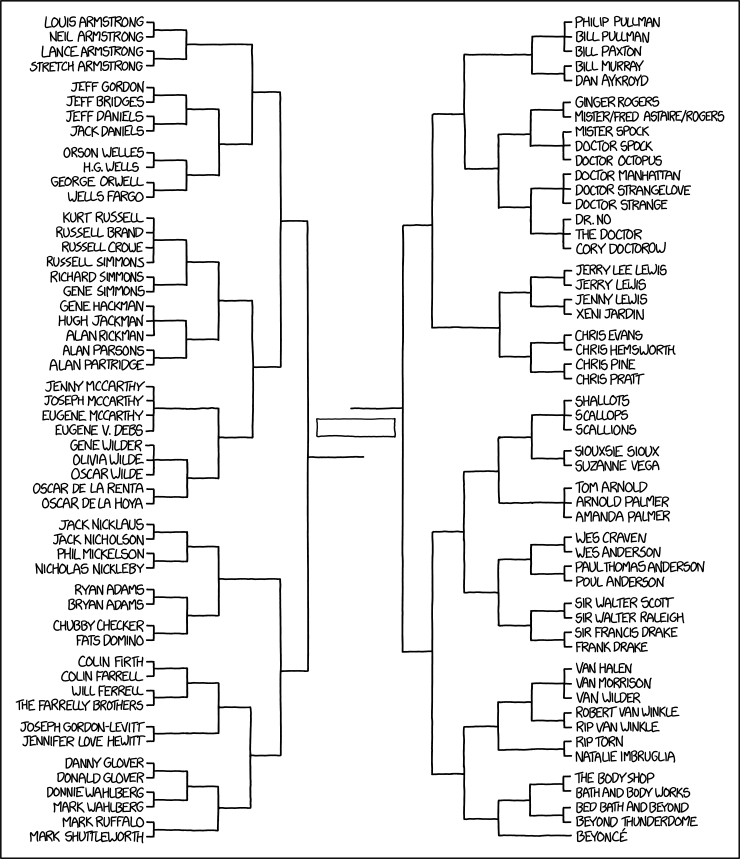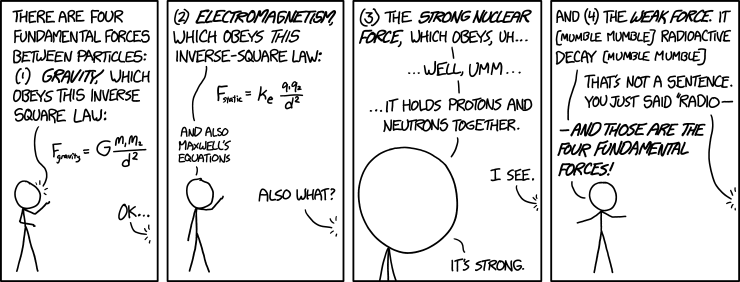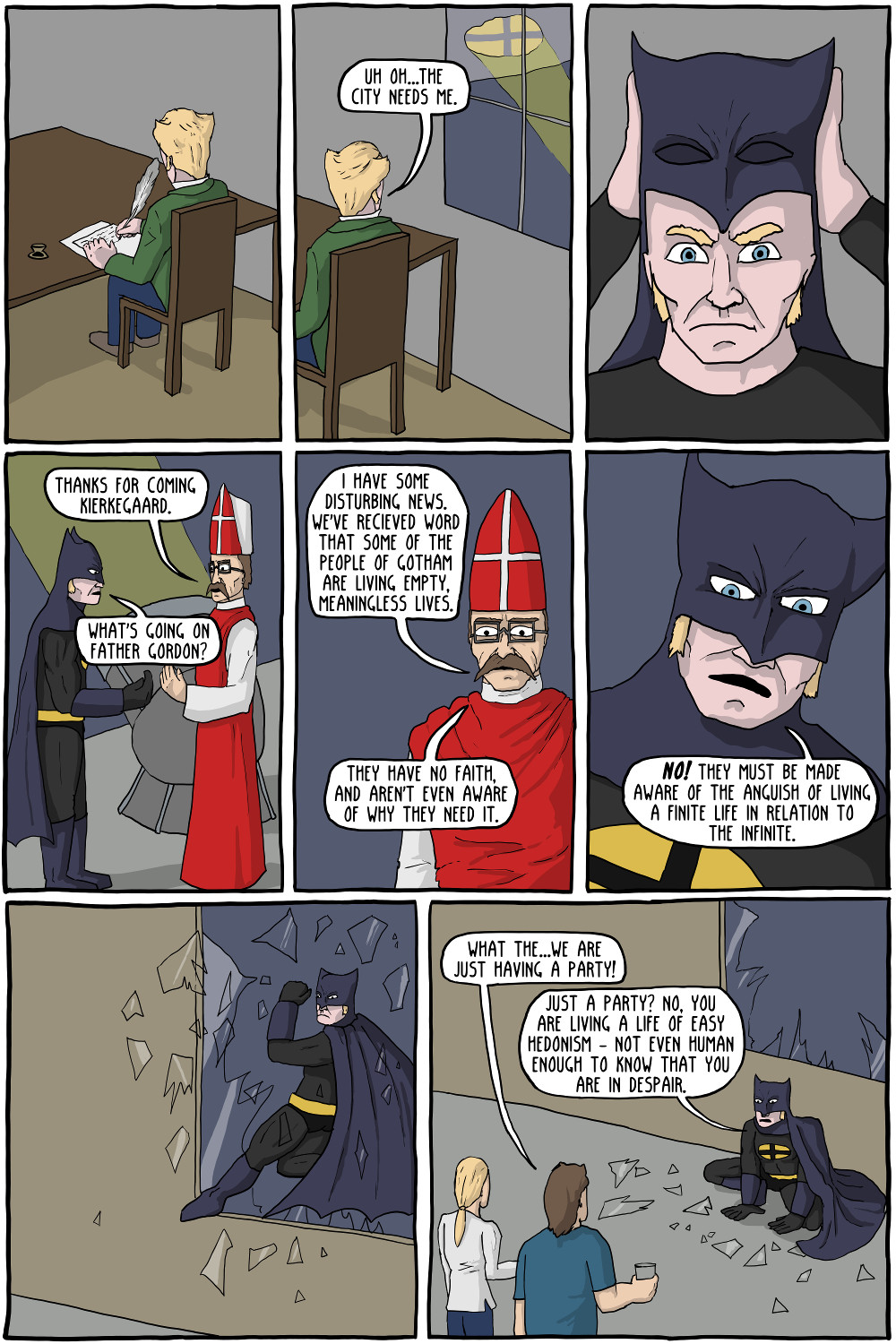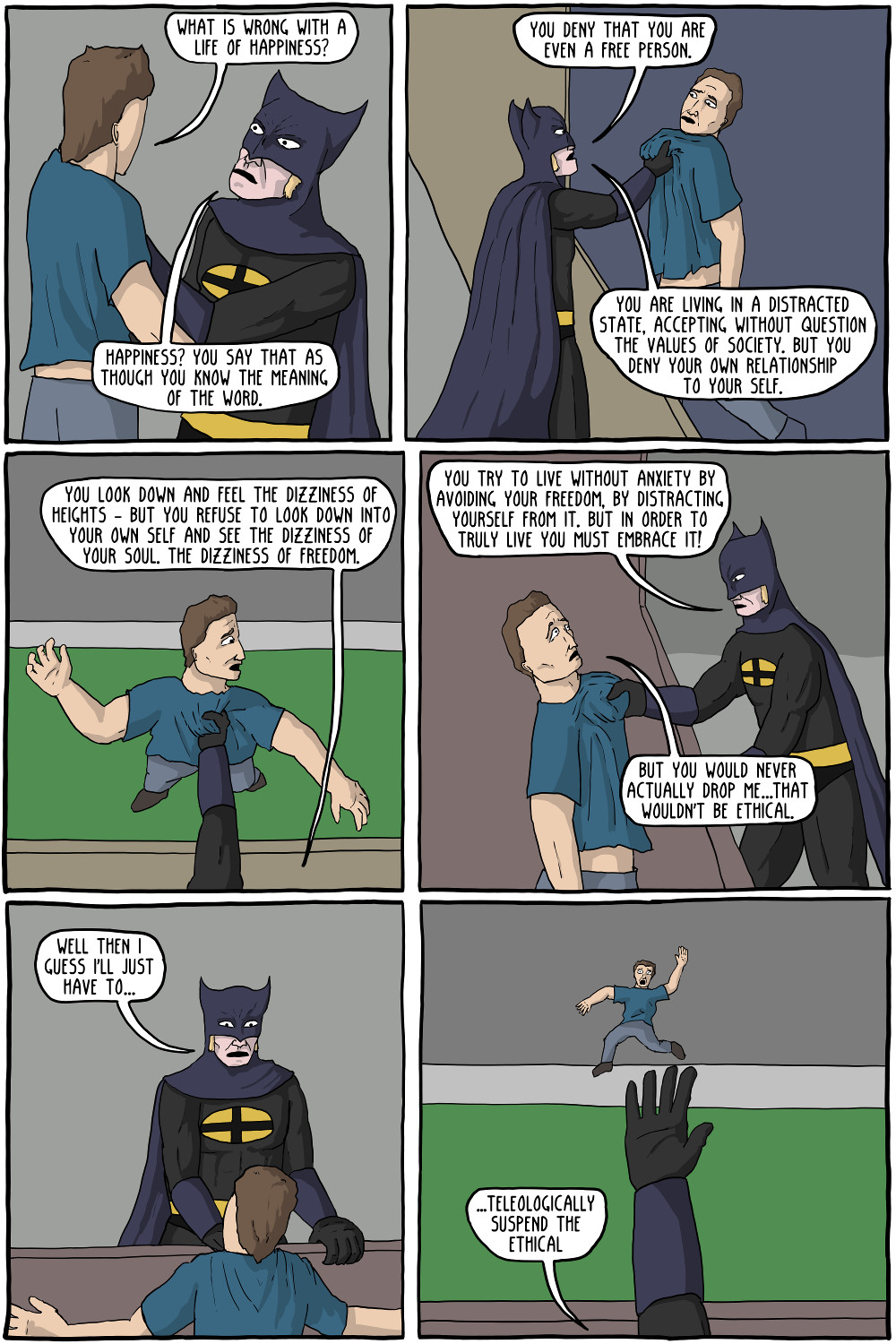My friend and fellow critic David Brothers wrote a worthwhile piece for you to read over on comicsandcola today, and it’s worth your time if only to see just what the hell is happening right now online in terms of comic criticism and activism. It’s a companion piece to the more condescending article that showed up on TCJ this week by Ken Parille.
Both articles orbit around what videogame nerds have decided to coin “social justice warriors”. Sometimes abbreviated as SJW…because of course. But basically what is being talked about is a kind of post-structuralist critical theory married to social media based calls to action. What that means basically, is a strand of critical theory that not only believes that the reader’s reaction is more important than the author’s intent, but further more that the author is culpable for that reaction. So to break that down even further, Batgirl comic has a transmisogynist character, therefore the author may very well be transphobic, and furthermore, the author is then called to atone for this mistake(through many thinkpieces, retweets, reblogs, shares, faves, and direct messages) through an apology and a promise to do better.
For me personally, I have always enjoyed reading post-structuralist critical theory, even when I was a young idiot, I have always had a curiosity for viewpoints that are outside of myself, and I have always enjoyed discussions of art as a vehicle to get a greater understanding of those perspectives. And indeed, as a queer transwoman, I have at times used art as a vehicle to share my experience. It’s like…through this movie we both dig, I can make you see the world for a second through my viewpoint, and maybe that humanizes queer transwomen for you just a little bit?
But where I start to fall away is when we go from simply identifying the flawed expression of our identities in art, to deciding that the art is dangerous, or that the artist is a rotten villain, or that because of this flawed expression that my criticism needs to exist as a call to action to “do better”. And on the flip side of that, I also don’t get down with people who are incapable of accepting that these expressions may be flawed in some way–or when we say flawed–what we mean is in-analogous. So Buffalo Bill in Silence of the Lambs is a flawed transmisogynist character, who functionally through the text of the film, presents trans-issues in a horrifyingly dehumanized way that is not accurate–and not that it needs to be, but it can be useful to write the article that explains to people who have never met a transperson before, that certain embellishments have occurred for the purposes of the work as a whole, and we can discuss how those function within the work as a whole. So I mean, the character is inarguably flawed in his presentation of transgender face. But for some people, they are so invested in the work as a whole, that any identification of this ilk, makes them shutdown, because hey, Silence of the Lambs is perfect–so therefore they try and “actually” you to death.
This denial of post-structuralist readings out of hand because of some need for pristine perfect works of art, which because we like them, must not have anything ever wrong with them, or ever be used to express ways in which the world hurts or is painful. This is something that David gets at really well in his article when he talks about how people completely shut down when something is called racist. If you say something is racist in a work, then it’s assumed that you are also calling the artist a racist, and “fans” racist–when really you’re just talking about a specific element within the work as a whole. A work can contain racist elements and not be racist as a whole, or it may be racist as a whole, but maybe the artist is racist, maybe they aren’t–maybe people who like it are racist, maybe they aren’t–the only thing though that is really being talked about though is this particular element in the work and how it affects a particular read experience. That can’t be treated as the end to a conversation. It should be a PART of a healthy critical discussion of art in which all perspectives are valid and can help us through art learn more about ourselves and the community around us. I mean this is one of the things art is principally for! Art doesn’t exist for you to just go be a fan of it. It exists to reflect back to you the projection of yourself funneled through a controlled artifice. Art allows you to understand yourself and your place in the world better, and experience awe at the elasticity of the human experience you enjoy. It is a magic of lines and sequences that allow you to attain an altered state of being, and evolve your experience.
Enter the third wheel of this crazy trycycle. Zak Smith wrote an excellent essay about the worst critic in the history of the world. In it, he explores critic Max Nordau, who is something of a cautionary tale for this current incarnation of activist post-structuralist theory. While Nordau himself, never directly tried to censor work, his histrionics about the potential danger of corrupting work of the time, which he believed to exist as a threat to social norms–did directly influence the destruction of art, and murder of artists.
This begins to get at how I feel about my own criticism, and some of my concerns with this popular strain of critical activism. Because on the one hand, while I strongly identify with using to identify flawed expressions of personal identity–I also strongly reject the idea that upon identifying these expressions, that the next course of action is to call for a particular action against the art or artist.
For one, I do not agree that the art and the artist are a singular face. I believe that a work of art exists between both the artist and the audience–and is it’s own third thing through which these two roads never actually meet. Even if you think you totally get a piece of art, and even if your reading of the art is 100 percent with what an artist says in an interview–it does not mean that either your reading, or the artist reading of the work is completely accurate. An artist can create things that are beyond their knowledge and beyond their understanding. There are things we do just as people, that we don’t have any cognizance of, but another person may see, and it may be an insightful thing for them. And because I don’t believe the art and the artist are linked, I can accept the fact that great art often times comes from terribly flawed people. There is a modern notion that if you produce great art, because the art is great, you must be somehow special and deserving of our adulation and attention. The artist-celebrity, the artist-priest–this notion that the artist because of their skills at expressing the ineffable, they are some kind of superhuman who we must uphold as some kind of paragon. It’s complete and utter bullshit. And we see it play out everyday now that everyone is connected, and there are no more secrets. Artists say and do some fucked up shit sometimes–just like you do. You know why? Because they’re just dumb flawed humans. But that doesn’t meant they can produce something which allows you to approach the sublime. So maybe an artist IS a great person. But horrible art comes from great people, and vice versa. In fact, currently a huge problem in comics are all the free passes “fans” are handing out for mediocre work based simply on the notion that the artist in question is an advocate for their cause. So someone like Brian Wood can build a career as this feminist champion in comics, while kicking mediocre boring ass books, and harassing women at cons. So because you view the artist as saint, not only can he get away with skullduggery, he also can start kicking subpar shit, but because your relationship is with the artist, not the art–you don’t care until it’s too late, and then you’re like outraged, because dude turns out ot be just like every other dumbass dude.
Secondly, I do not believe that art has societal power. I believe art creates the sacred. What I mean by that is that, for each individual that experience a piece of art, a space exists that only that person expereinces, that can be profound and moving, based upon what they have projected out as their perception, and how that filters back to them with this thing called art. But that experience is not something you can translate to another person. Two people can see the same piece of art, but the experience they have is never wholely translatable to the other. You take that shit to your grave. I know this because as a critic, I spend tons and tons of words trying to explain the power of my experience–but in the end, all I can convey is just that…the power of my experience. But even if you think you experience something similar–it is still different.
So what that means is that art can be extremely powerful to the individual, but because it is not translatable to society as a whole, it’s power is isolated to each individual that perceives the work.
It’s popular to say that art is this super powerful thing. This notion that a great work of art can crack the world in half. It is a moronic idea, and I say that as an artist, who absolutely believes in the creation of the sublime experience. But if art was so powerful–then why couldn’t Godard stop Vietnam? Why couldn’t Ralph Ellison end racism? Was their art not powerful enough? And if their art isn’t powerful enough–how can a bullshit issue of batman be that powerful?
The reason we say that art is powerful is because for US, for our individual experience, art IS profound. It’s like touching the divine. But we can’t extrapolate it. And whatever we do pull out from the art to throw to others, is fundamentally not the art itself–but our reading of the art. And that point the art is immaterial. You’re just writing an essay adovocating for something–and maybe it will be heard, maybe it won’t–it’s letter to the editor writing.
The danger is that in the power of your howl, you might actually wake a dragon up. You see when you run around saying how art is dangerous, and how artists need to be responsible–the problem is that at some point, someone might actually take you seriously. Because the logical societal response to dangers to said society is to exercise societal power against said danger, until it is minimized. As Zak pointed out in his essay, quoting from Isiah Berlin:
“”…some, and by no means the least distinguished, tend to say that state control has its positive aspects as well. While it hems in creative artists to an extent unparalleled even in Russian history, it does, a distinguished children’s writer said to me, give the artist the feeling that the state and the community in general are, at any rate, greatly interested in his work, that the artist is regarded as an important person whose behavior matters a very great deal, that his development on the right lines is a crucial responsibility both of himself and of his ideological directors, and that this is, despite all the terror and slavery and humiliation, a far greater stimulus to him than the relative neglect of his brother artists in bourgeois countries.”
A society where art is considered powerful is not a safe one for art to be created in. And indeed it’s not even a great environment for good art to be produced. Seen any of those Kim Jong Il movies? Yeaaaah.
Which was what Zak was getting at with Nordau, that his criticism was irresponsible because it created an environment where art was dangerous, where artists had moral responsibilities to project in their work–and eventually powers came along and used his writing as the guide posts to some real fuckboy shit. And I mean comics should know better. Frederic Wertham set back American comics for who knows how fucking long, with his social advocacy about the dangers of art. A medium dominated by dumbass superheroes is your reward.
And obviously, this brings us up to Charlie Hebod. A group of violent fuckheads came along, said art was dangerous, art was powerful, that art was worthy of answering with violence if it was offensive enough–and then 12 people died because of it. And I guess this week has been a frustrating walk between two sides. One side, where they rightfully identify racist imagery, but wrongly attach a danger and power to these works of art, which calls for some kind of vague responsibility, of the type that Nordau asked for. And then an other side, which flatly rejects that the images contain racist imagery at all.
And meanwhile between all of this 12 people are dead, because as powerful as art supposedly is, fuckboys with guns will always be more powerful. And meanwhile, I still don’t know a fucking thing about any of the artists that died, or what the magazine was for them. It’s really been quite the week for criticism to show it’s impotence in the face of true adversity. Anyway. I want to eat some buffalo wings now.









